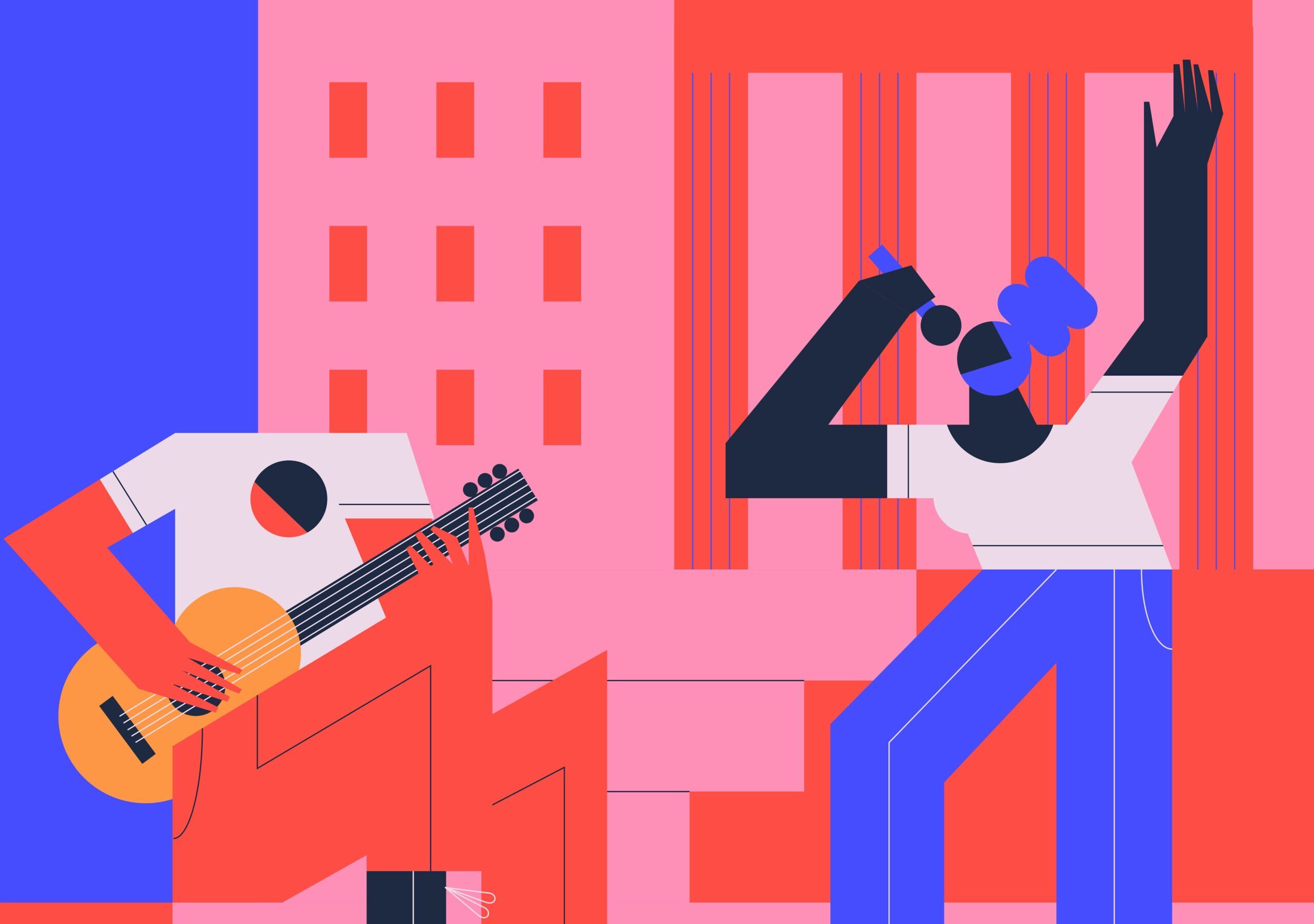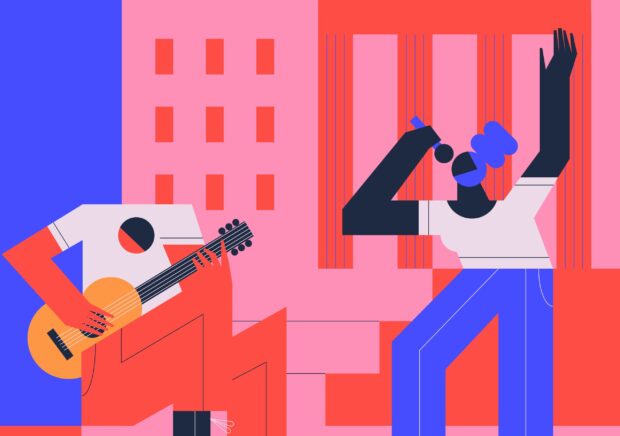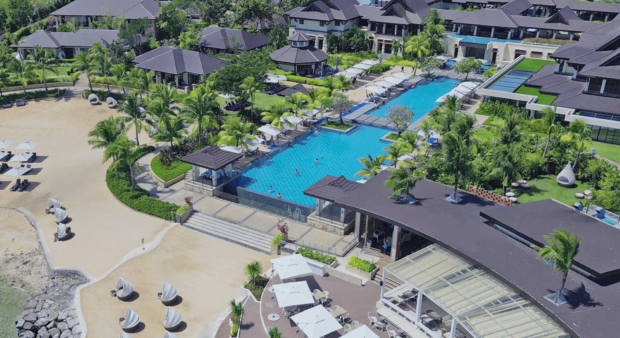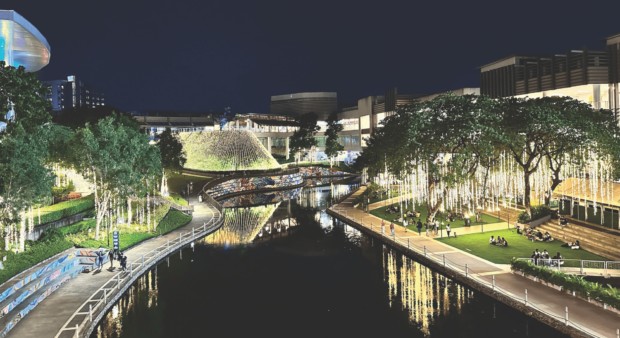We’re almost addicted to cold drinks, even just water, during meals—what better way to end a good meal than flush everything down with a full glass of cold water.
For people with digestion problems, that may make it worse and cause more indigestion.
It’s because the digestive enzymes in the stomach do not function optimally if the temperature in the stomach is colder than normal body temperature.
When the gastric temperature is lowered because of the cold drinks, food which are normally predigested in the stomach for a few hours—such as meat, fish, poultry, cheese, legumes and grains—are prematurely pushed into the small intestines.
Unfortunately, there are some proteins and other food elements that cannot be properly digested in the small gut.
So, if you feel bloating, belching, excessive burping, or have bad breath, diarrhea, food allergies and other problems related to food intake, the cold drinks with meals may be the culprit.
Our stomach may secrete more than a liter of gastric juices daily to digest the food we take in. The gastric juice contains hydrochloric acid, and being acidic, it can be very irritating to the stomach lining. But its mucosa—a thick, moist, mucous layer—offers protection, shielding the stomach lining from the acidic gastric juices so it does not develop ulcers or swelling called gastritis.
When an ulcer develops—because there’s already a break in the mucosa—bacteria from the intestines called helicobacters can easily infect it and make the ulcers worse.
Lukewarm water
Lukewarm water helps moisten the gastric mucosa to prevent it from drying out. And this is especially important in the morning.
Since many of us do not take water anymore after dinner until we wake up in the morning, the gastric mucosa may be a
little dehydrated.
A glass or two of water upon arising helps rinse the upper part of the gastrointestinal tract (the esophagus) so that food and acid, which may have refluxed to its lower part while we were in bed, are flushed back into the stomach.
The regurgitation of gastric acid and food can be a bothersome problem for those with acid-reflux disease.
When we’ve had too much to drink at night, the vomiting and belching during the night can cause some gastric acid to reflux to the esophagus.
Two glasses of lukewarm water in the morning can help relieve the gastritis caused by excessive alcohol. The early morning hydration helps thicken the mucosa to make it a more effective shield from the gastric juices.
So taking one to two glasses of lukewarm or even room-temperature water first thing in the morning when we wake up can be a healthy practice for everyone.
The effect of cold liquid on stomach motility has long been shown by radiologists when they do upper gastrointestinal X-ray tests to detect ulcers in the stomach.
For this test, they ask the patient to drink a barium solution—a white chalk-tasting liquid which serves as dye to allow visualization of the stomach.
Radiologists noted that when the barium solution was cold, its transit time from the stomach to the small intestines was shorter; hence, sometimes, they did not have enough time to really see what was wrong in the stomach.
The reverse was true when the barium liquid was warm.
The same effect may be expected when cold drinks are taken with meals or immediately after meals. Cold drinks do not allow the food we’ve just taken in to remain longer in the stomach to allow better digestion by the enzymes in the gastric juice.
This is also the reason we sip warm broth or soup just before eating. This serves as the “advance party” to prime our stomach and cause it to secrete more gastric juice because food is on the way.
Some health experts recommend the drinking of room-temperature or preferably lukewarm water 30 minutes before eating and three to four hours after a meal, not immediately after. If we take the water during or immediately after a meal, this dilutes the gastric juice and can also slow down digestion.
If we have to do away with water while taking our meals, we need to eat more slowly, chew our food well before swallowing. The saliva also has some digestive enzymes which can assist the stomach in predigesting the food.
If we rush eating our meals (admittedly, many of us in the medical profession are guilty of this), this can even make the esophagus go into a spasm, requiring us to drink water a few times while eating.
We should take at least 20 minutes to finish a regular meal, and not try to ram everything down our throat in five minutes or less.
Should we then avoid cold drinks at all times?
Definitely not. There are instances when cold drinks would be beneficial.
After exercise, when body temperature increases, cold drinks are better to cool down the body and restore normal body temperature.
Same thing is true when one is outdoors and the risk of developing a heat stroke is high, especially in the elderly. Cold drinks are more effective in helping douse the heat.
So get the ice out of our drinks when we’re about to eat. And let’s drink to that!












































